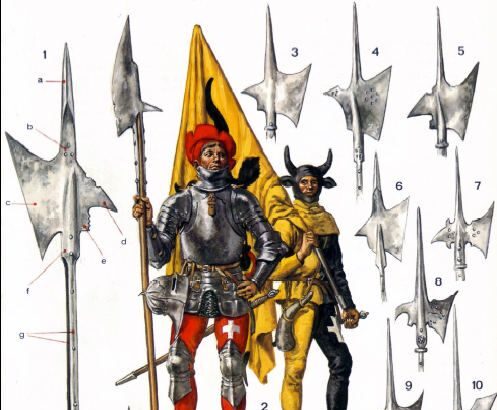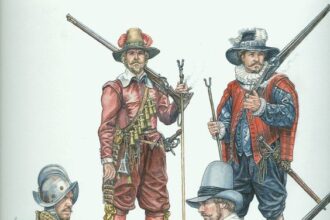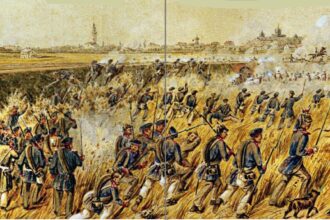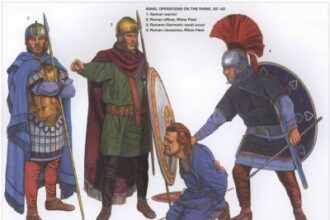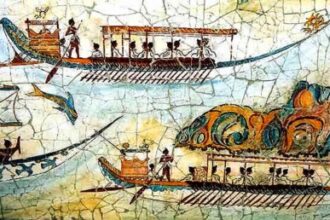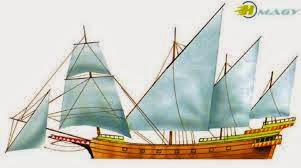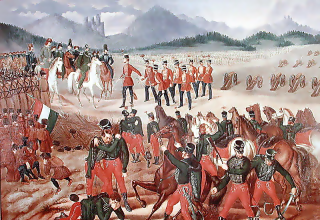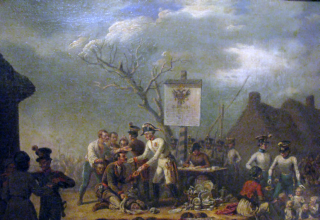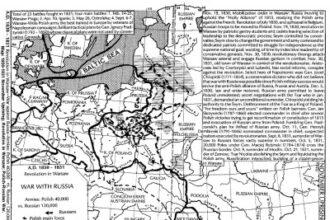Newsletter
Get the latest from Weapons and Warfare right to your inbox.
Follow Us
Explore
History
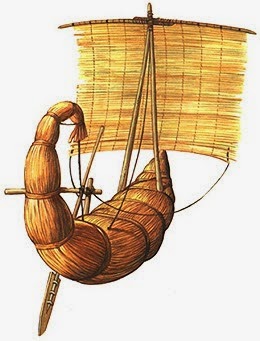

European Warfare 1300-1650 II
Swiss mercenaries In the mid-fifteenth century English dynastic disputes opened the way for a French reconquest of her lost territories by 1453. The French established a regular force the Compagnies d’Ordonnance which numbered up to twenty companies, each of 100 ‘lances’. These were lances fournies, each made up of one experienced man-at-arms and a squire, both with warhorses, together with…
Most Recent
Alamannic raiders
When assessing the overall effectiveness of Roman frontier defense, therefore, it is necessary to factor into the equation that substantial economic losses to outside raiding were also part of the picture, since it took a fair amount of raiding to trigger a response. How substantial that raiding might have been…
Thera – Representation of a Minoan Ship/Fleet
The south section of the frieze constitutes the last chapter in the story. The fleet is sailing away from the harbour of Town IV in the direction of the home port (Town V). A small rowing boat in front of Town IV, with five oarsmen and a helmsman, seems to…
Slave carrack
During the sixteenth century the Portuguese, with their large Brazilian possessions, were dominant in the transatlantic slave trade. Speed at sea was essential, as the mortality rate in the slave hold was very high. Slave ships would moor in creeks on the West African coast in order to rendezvous with…
1848 in Austro-Hungary
Capitulation of Hungarian Army at Világos 1849 In 1848, when a series of revolutions broke out across Europe, Pest, Vienna, and Prague were among the cities at the forefront of experiments with political reform. In Hungary, under the leadership of Lajos Kossuth (1802.1894), the diet rapidly proclaimed a new constitutional…
1846 in Galicia
“Rzeź galicyjska” by Jan Lewicki (1795-1871) Some critical observers such as Count István Széchenyi (1791–1860) in Hungary blamed Hungary’s political weakness and economic poverty precisely on a shortsighted nobility that gave little thought to the economic welfare of the larger society and fought only to maintain its class privilege. Nobles…
Polish Insurrection 1830
Emperor Franz Joseph started to regather and rearm an army to be commanded by Anton Vogl, the Austrian lieutenant-field-marshal who had actively participated in the suppression of the national liberation movement in Galacia in 1848. But even at this stage Vogl was occupied trying to stop another revolutionary uprising…
Most Popular
Elizabeth towards War I
European matchlock musketeers of the Elizabethan period. By the early 1570s the Puritans had grown…
Uniforms of Italian Wars (1494-1559)
A series of sharp but also intermittent conflicts broke out over control of Italy at…
The Khmer Empire
In 1181, King Jayavarman VII launched a military campaign against the Chams, as vengeance for…
Ancient Israel – Warfare
Approximate map of the Iron Age kingdom of Israel (blue) and kingdom of Judah (yellow),…
